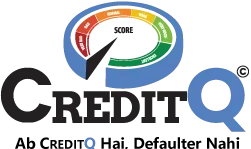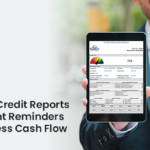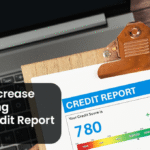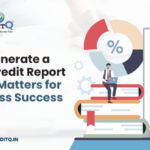
As a small business owner, you’re likely familiar with the challenges of managing debt while trying to maintain financial stability. Debt can feel like a constant burden, limiting your ability to grow and succeed. However, “Small Business Debt Solutions” like debt settlement may offer the relief you need to overcome these financial obstacles and thrive.
Debt settlement is a strategy that allows you to negotiate with your creditors to reduce the total amount of debt you owe. By working with a debt settlement company or negotiating directly with your creditors, you can potentially pay off your debts for less than the full amount, helping to alleviate the financial strain on your business.
In this comprehensive guide, we’ll explore how debt settlement works for small businesses, the benefits it can offer, and the steps you can take to navigate the process successfully.
Understanding How Debt Settlement Works for Small Businesses

The debt settlement process involves either you or a debt settlement company negotiating with your creditors to lower the total amount of debt you owe. The goal is to reach an agreement where you pay a lump-sum, discounted amount to settle the debt, rather than continuing to make full monthly payments. This process can provide significant financial relief and help you manage your debts more effectively.
The key aspects of how debt settlement works for small businesses include:
- Negotiation with Creditors: The debt settlement company or your own negotiations will involve contacting your creditors and proposing a settlement amount that is less than the full balance owed. Creditors may be willing to accept a reduced amount to avoid the risk of defaulting on the debt entirely.
- Lump-Sum Payment: Once an agreement is reached, you will typically need to make a lump-sum payment to the creditor to settle the debt. This payment is usually a percentage of the original balance, often ranging from 30% to 70% of the total owed.
- Suspension of Payments: During the debt settlement process, you will typically stop making regular monthly payments to the creditors. This allows you to save up the funds needed for the lump-sum settlement.
- Impact on Credit: Debt settlement can have a negative impact on your credit score, as it is considered a form of debt restructuring. However, the long-term benefits of reducing your overall debt burden may outweigh the temporary credit score impact.
Benefits of Debt Settlement for Small Businesses

Debt settlement can offer several key benefits for small businesses struggling with debt:
- Debt Reduction: The primary benefit of debt settlement is the ability to reduce the total amount of debt you owe. By negotiating a lower payoff amount, you can significantly reduce the financial burden on your business.
- Improved Cash Flow: With a reduced debt load, you’ll have more available cash flow to reinvest in your business, cover operational expenses, or pursue new growth opportunities.
- Avoidance of Bankruptcy: Debt settlement can provide an alternative to bankruptcy, allowing you to resolve your debt issues without the severe consequences and long-term impact of a bankruptcy filing.
- Simplified Debt Management: By consolidating multiple debts into a single, negotiated settlement, you can simplify your debt management and focus on the path forward for your business.
- Reduced Stress and Improved Productivity: Alleviating the constant worry and burden of debt can help you and your team focus on the core operations and growth of your business, leading to increased productivity and a healthier work environment.
Choosing the Right Debt Settlement Company

If you decide to work with a debt settlement company, it’s crucial to choose the right partner. Here are some key factors to consider:
- Reputation and Track Record: Research the company’s history, client reviews, and success rates in negotiating debt settlements.
- Transparency and Communication: Look for a company that is upfront about its fees, processes, and timelines, and provides regular updates on the status of your case.
- Licensing and Compliance: Ensure the debt settlement company is licensed and operates in compliance with relevant state and federal regulations.
- Personalized Approach: The best debt settlement companies will take the time to understand your unique financial situation and tailor their services accordingly.
- Affordable Fees: Be wary of companies that charge exorbitant upfront fees or a large percentage of the total debt owed.
Steps: How to Settle Business Debt

If you decide to pursue debt settlement, here are the typical steps involved:
- Assess Your Debt: Gather information on all of your outstanding business debts, including the creditor, balance owed, interest rates, and payment history.
- Determine Your Goals: Decide on your target debt reduction amount and the timeline you’re aiming for to achieve financial stability.
- Choose a Debt Settlement Company or Negotiate Directly: Decide whether to work with a debt settlement company or handle the negotiations yourself.
- Communicate with Creditors: Notify your creditors that you are pursuing debt settlement and provide them with the necessary information.
- Negotiate the Settlement: Work with the debt settlement company or negotiate directly to reach an agreement with each creditor on the reduced payoff amount.
- Make the Lump-Sum Payment: Once the settlement terms are agreed upon, make the negotiated lump-sum payment to the creditor.
- Obtain Written Confirmation: Ensure you receive written confirmation from the creditor that the debt has been settled and that they will not pursue any further collection efforts.
- Monitor Your Credit Report: Keep a close eye on your credit report to ensure the settled debts are accurately reflected and that your credit score begins to recover over time.
Must Read: How to Generate a Company Credit Report for Business Success
Conclusion
Debt settlement can be a powerful tool for small businesses struggling with overwhelming debt. By negotiating with creditors to reduce the total amount owed, you can alleviate the financial burden, improve cash flow, and focus on the growth and success of your business.
However, debt settlement is not the right solution for every small business. It’s important to carefully weigh the potential benefits against the potential drawbacks, such as the impact on your credit score and the ability to secure future financing.
To determine if debt settlement is the best course of action for your small business, we recommend speaking with a financial advisor or debt management professional. They can help you evaluate your specific situation and guide you through the process of exploring and implementing the most suitable debt relief strategy.
If you’re a small business owner looking to explore small business debt solutions, consider connecting with CreditQ. Their team of financial experts can provide personalized guidance and support to help you navigate the debt settlement process and find the best solution for your business.









